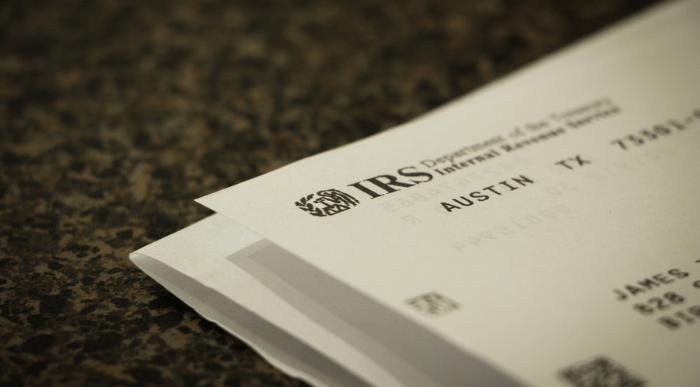
How to Respond to an IRS Notice
Receiving an official notice from the Internal Revenue Service (IRS) can be a frightening experience, but don’t panic! Responding to an IRS notice doesn’t have to be a nerve-wracking experience. With a clear understanding of the process and the assistance of a qualified tax attorney, you can navigate through the complexities of tax debt communication and come out on top. With all of that said, let’s dive into the world of IRS notices!
Embrace the “Read, Reread, and Relax” Approach
When you receive an IRS notice, make sure to take a deep breath first. Read the notice carefully, not once, but twice or even thrice if needed. Absorb every detail, from the tax type and amount owed to the payment deadline. By mastering the art of attentive reading, you’ll gather the necessary information to tackle the notice head-on.
Decode the Notice
The IRS loves throwing around acronyms, but don’t let them intimidate you! Familiarize yourself with common notice types such as CP14, CP501, CP503, and CP504. Each notice signifies a specific stage in the tax debt resolution process. Understanding these codes will help you decipher the IRS’s cryptic language and choose the most appropriate response.
- Notice CP14: This notice is sent when there is an outstanding balance due on a tax return and provides payment instructions.
- Notice CP501: This notice is sent as an initial reminder of unpaid tax debt and includes information on the total amount due and the payment options available.
- Notice CP503: This notice is sent if the taxpayer has not responded to a prior notice (CP501) and serves as a second reminder to address the outstanding balance.
- Notice CP504: This notice is a final warning before the IRS initiates collection actions, providing a last opportunity to resolve the tax debt.
- Other notices: The IRS issues various other notices depending on specific circumstances, such as notices related to audits, proposed adjustments, or tax return errors.
Find the Discrepancies
Now it’s time to compare the notice with your own tax records. Look for any mismatches or errors—double-check your tax returns, payment receipts, and other documents to ensure accuracy. If you uncover any discrepancies, gather your evidence and prepare to present your case. These discrepancies can sway the outcome of your inquiry with the IRS.
Keep Calm and Respond Promptly
Just like texting etiquette, it’s crucial to respond promptly to the IRS. Missing deadlines can lead to additional penalties, so make sure to respond within the specified timeframe. If you need more time, consider requesting an extension—but remember, the IRS doesn’t grant extensions on a whim.
Choose Your Response Method Wisely
When it comes to responding to an IRS notice, you have options. Choose the method that will enable you to successfully address your tax debt issue:
- Payment Power: If your notice demands a payment, it’s time to break out the checkbook. Follow the instructions provided and send the necessary payment as directed. Include the necessary identification numbers and payment references, making the IRS’s life easier and your tax debt smaller.
- The Art of the Written Word: Sometimes, a well-crafted letter can work wonders. If you disagree with the notice or need to explain an error, put your literary skills to use. Craft a detailed, polite, and persuasive response outlining the issues and attaching supporting documents. Remember, this isn’t the time for angry rants or lengthy sonnets—stick to the facts and be as clear as possible.
- Make a Call: Can’t stand the thought of writing a letter? Pick up the phone and give the IRS a ring. Be prepared for a potentially long hold time (cue elevator music), but once you get through, explain your situation calmly and concisely. Jot down the date, time, and the IRS representative’s name to create your own mini telephonic paper trail—it could come in handy later.
- Get Online: In the digital age, the IRS has embraced the world of zeros and ones. Explore the IRS website or the Online Account option to respond online if available. It’s like sending a virtual message in a bottle but without the risk of it ending up on a deserted island.
Your Best Tool is a Qualified Tax Professional
While preparing to respond to an IRS notice is a responsible exercise in preparedness, nothing can help you prepare more than finding a qualified tax professional to leverage their knowledge, experience, and legal degree to resolve your tax debt burden.
Responding to an IRS notice doesn’t have to be a dreaded task. For a free consultation with a tax attorney, click here or call (833) 391-1038.
Free Tax Case Review
If you are struggling with tax debt or have received a letter from the IRS complete the form below.IRS Audit
You received an audit notice from the IRS
Tax Debt Relief
You owe the IRS money and are looking for relief options
Wage Garnishment
The IRS is taking part of your wages to pay off your debt
Tax Lien
The IRS put a legal claim on your property
IRS Property Seizure
The IRS is going to take your property to pay down or pay off your tax debt
Penalty Abatement
You want to request to remove or reduce penalties assessed by IRS
Innocent Spouse Relief
Relief from joint tax debt caused by your spouse or former spouse
Tax Debt FAQ
Common facts, questions and answers about tax debt and tax debt reilef
Tax Debt Lawyer
A tax debt lawyer can help you with your tax debt problems





